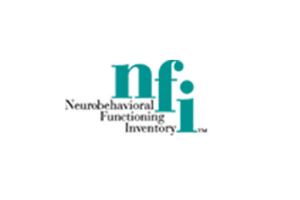Description
Neurobehavioral Functioning Inventory (NFI™) helps develop effective treatment plans and measure changes in patients with TBI and other neurological disorders (e.g., stroke, multiple sclerosis).

Neurobehavioral Functioning Inventory (NFI™) helps develop effective treatment plans and measure changes in patients with TBI and other neurological disorders (e.g., stroke, multiple sclerosis).
Neurobehavioral Functioning Inventory (NFI™) helps develop effective treatment plans and measure changes in patients with TBI and other neurological disorders (e.g., stroke, multiple sclerosis).
Jeffrey S. Kreutzer, Ronald T. Seel, Jennifer H. Marwitz
Overview:Develop an effective treatment plan for patients with TBI
Age Range:17 to 80 years
Completion Time:30 minutes
Norms:Percentiles, T Scores
Publication Date:1999
Use the Neurobehavioral Functioning Inventory (NFI™)to help you develop effective treatment plans and measure change for patients with traumatic brain injury and other neurological disorders (e.g., stroke, multiple sclerosis). NFI is a brief self-report inventory that can be completed in 30 minutes or less by the patient or family member. A broad range of health professionals working in the rehabilitation arena can quickly and easily administer NFI to adults ages 17 to 80.
NFI’s 76 items are organized into six independent scales reflecting symptoms and problems commonly encountered following the onset of neurological disability:
The two forms (Patient Record Form and Family Record Form) allow comparison between two perspectives. The behaviors and symptoms are presented in a list format that is easy to understand and designed for a sixth-grade reading level. Items on both forms use a five-point Likert-type scale to measure the frequency of behaviors exhibited by the patient. Response choices include Never, Rarely, Sometimes, Often, and Always. Items from each of the six scales are mixed within the instrument to avoid response bias.